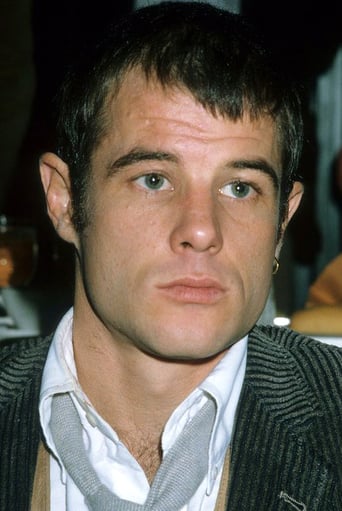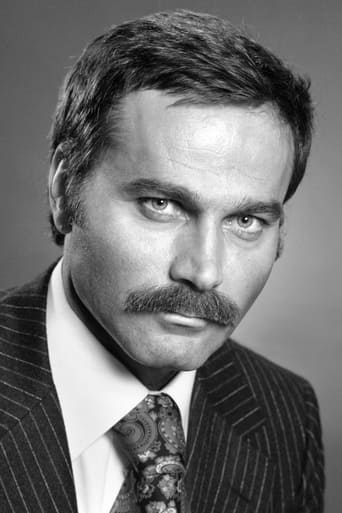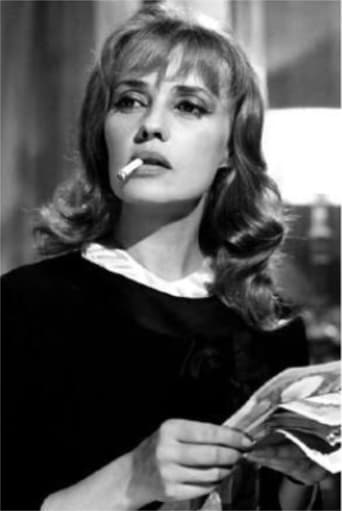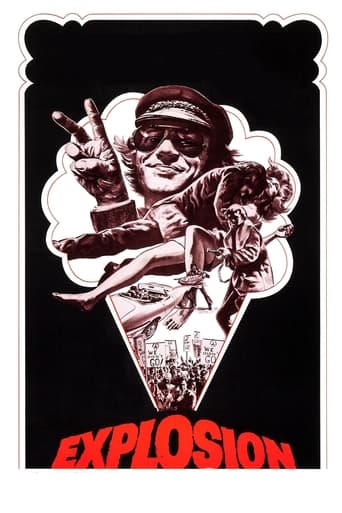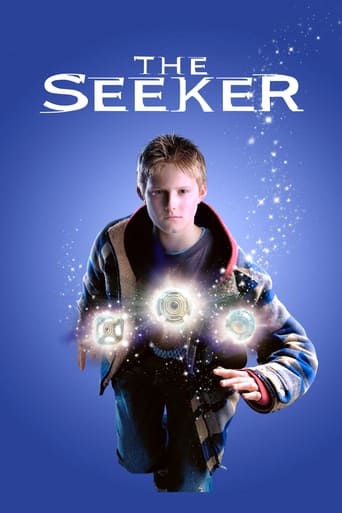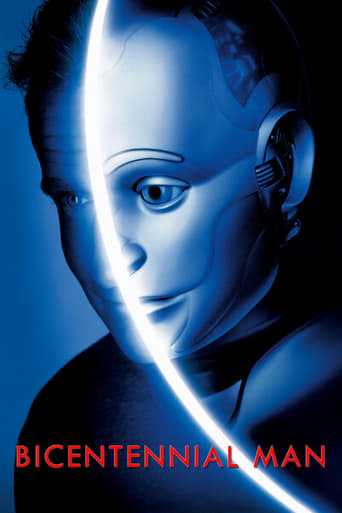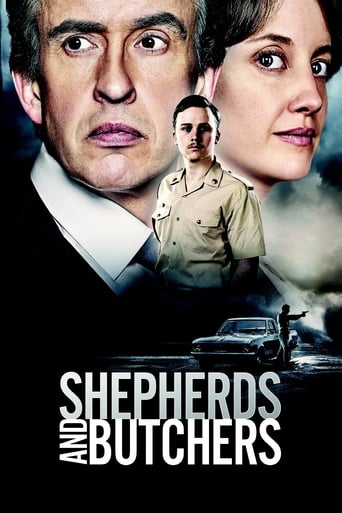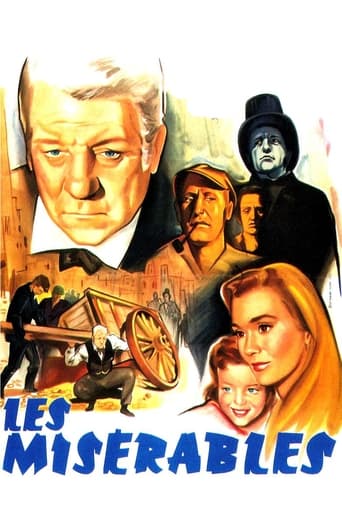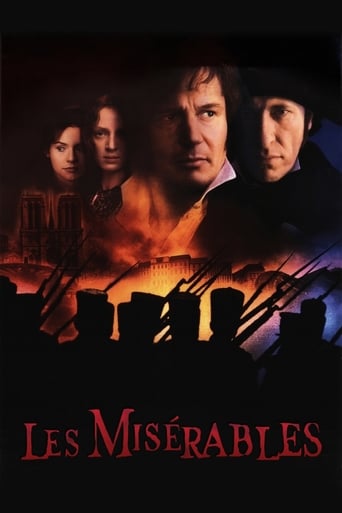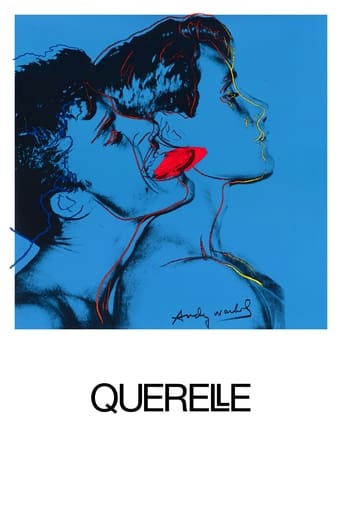
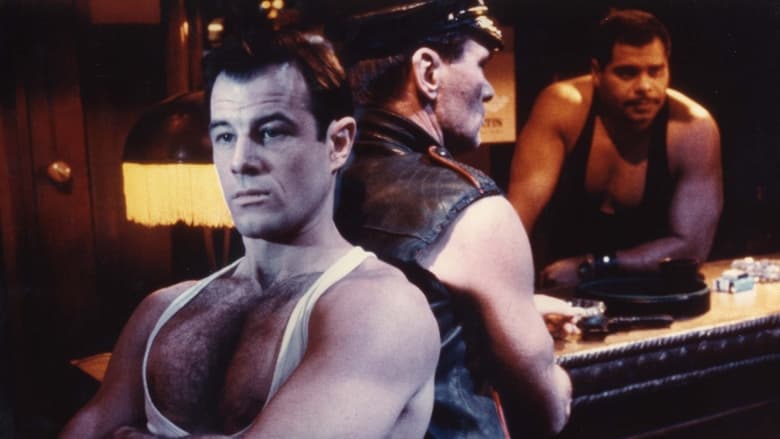
Querelle (1983)
A handsome Belgian sailor on shore leave in the port of Brest, who is also a drug-smuggler and murderer, embarks upon a voyage of highly charged and violent homosexual self-discovery that will change him forever from the man he once was.
Watch Trailer
Cast
Similar titles
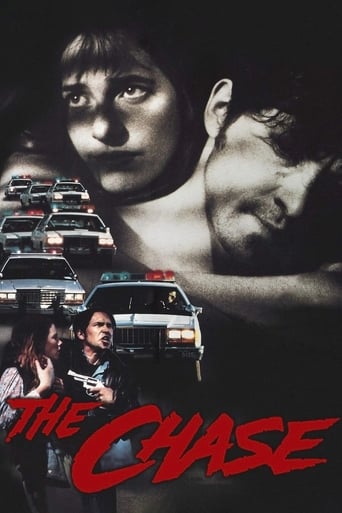
Reviews
Save your money for something good and enjoyable
The best films of this genre always show a path and provide a takeaway for being a better person.
Actress is magnificent and exudes a hypnotic screen presence in this affecting drama.
An old-fashioned movie made with new-fashioned finesse.
I don't think I quite understood what "Querelle" was about but the good aspect of it is that you at each view you get new things, and it grows on you. Far from being a masterpiece like "Ali: Fear Eats the Soul" or "The Bitter Tears of Petra von Kant", but this is a very good project directed by Rainer Werner Fassbinder, his last and the one he got some of the heaviest criticism of his career. In a way, the most tragical of all of his works after being forced to cut part of it to get a release in America, probably the first time he ever had to back down and cut something he directed.Based on author Jean Genet's 1947 novel Querelle de Brest, the movie revolves about Querelle, an Belgian sailor (Brad Davis) who plays with danger with his criminal affairs selling opium and his involvement with male and female, using of his good looks to get what he wants. To him (and to everyone around him) everything's a game in which losing sometimes can be useful (the dice game where he deliberately loses in order to have sex with Nuno, played by Gunther Kauffman). Querelle's a man with many love affairs and relations, center of attention of his own brother (Hanno Pöschl), and their strange "brotherhood", love/hate kind of thing; Nuno, his wife (Jeanne Moreau) owner of a decadent bar where most of the film takes place, and he's treasured from distance by his captain (Franco Nero). The other half of the film explores what can be called of real love between Querelle and a murderer (who is played by the same actor who plays the brother).The movie is very open when it comes to presenting Querelle's involvements with both genders, specially his sexual scenes with another men, very bold at the time. If the story gets too much on a second plan, since the ideas are somewhat vague, foggy, the high point of enjoyment of the film is seeing Querelle getting well with his mates. For the most part, the movie isn't so exciting and is very confusing with its imposition of ideas one on top of another. What's the story in deeper terms? A man discovering his sexuality, trying new things or he's trying to find real love? Is he testing his moves as a player or he's just a man trying to survive using of his talents? Fassbinder intrigues us more with the whole concept of man being a product of his environment, adapting to his (and others) needs and what he makes here (don't know if the same happen in the book) is a strange fantasy world where everyone is bisexual or have more inclination towards another man, enjoying endless sunsets created on fake sets, surrounded by large columns resembling phallic elements. The script is more like a literary work than a cinematic experience, with several cards expressing Querelle's inner thoughts or the captain's romantic narration watching the love of his life, working all sweaty.Rainer had his reasons and perhaps we'll never know what motivated him making this film in the way he did, but the artist is deeply immersed in this work, putting elements of his life, his love and all (including a dedication to El-Hedi Ben Salem, one of his partners, who died that year). A little bit butchered, panned by critics and part of the public, a distressing experience to the director who wasn't much in his best moment in life but with career on the top, but sadly he died and this was his last film. Not much of a great swan song but very admirable in several ways. The risk taken by Brad Davis was incredible and unfortunately he paid the price for it, barely appearing on well-known films or great projects. But what a performance! He's really good, very desirable and makes the character be what he needs to be. How many times you've seen a film where it is sold to us someone who is so beautiful and attracts everything and everyone but when you look at, it doesn't cause such effect? Davis was all that.Here's a tale about immorality, manipulation, the right of the strongest to conquer anything, ultimately about the individuals who kill the things he love. Men, essentially. 7/10
Rainer Werner Fassbinder once said that his oeuvre should be considered like that of a house, some parts are staircases and walls, other parts plumbing, but it should be considered a sturdy house. It's a good analogy, and for his (regrettably) final feature, Querelle, I suggest it's the sauna- a sauna lit with gaudy orange-yellows and loaded with overly serious homosexual theater patrons with occasional guest stars who should be in better rooms like Jeanne Moreau and Franco Nero. It ends up being some fun being in the room, but for completely all the wrong reasons. And, indeed, you may be totally befuddled by the look and feel of the sauna, with its stultifying heat making one feel, ultimately, more dull than dramatically engaged. It was also created in those final days of Fassbinder's, as a bloated coke-head who just earlier that year burned through one of his very best productions (Veronika Voss) only to, finally, burn out completely.Maybe Neil Young was wrong in his song, about the burn vs. rust, though in Fassbinder's case it was the only way. One can't help but see the passion in the project, an overtly theatrical and artificial film that has the subtitle "A Film About Jean Genet's Querelle". Genet, of course, was a scandalous poet/playwright in France, and he's inspired a few movies in his time. With this one, Fassbinder takes the sort of tactic Godard did in his later years- the lesser ones, arguably- as a blend develops between title cards, "authoritative" narration not too unlike the sort in Little Children, and an actual (if not very coherent) narrative of a sailor, Querelle, who gets gay sex for the first time, kills his opium dealer, gets embroiled in a mystery involving his boss, and somehow Jeanne Moreau's bar owner keeps an eye over everything more or less in-between her repeated song she sings.That, at least, is as much as I could figure. I really did want to give this a fair shot. I had read some negative reviews, but as well I read Marcel Carne's praise at the Venice film festival, that it would have a place in the HISTORY of CINEMA- in BOLD no less. And it's not even the homosexuality on display in and of itself that is a deterrent. It's the way Fassbinder goes about it; everything is so *serious*, so much without a hint of humor, that for a while I ended up straining to keep my eyes open. Brad Davis, and I'm not exaggerating in this description, is absolutely atrocious. He attempts to 'emote', but is so stilted and without any real trace of actual human sensitivity or connection to the other actors that he's like a slab of SPAM. Others like Gunther Kaufmann (in give or take a dozen Fassbinders) and the aforementioned Moreau and Nero are basically left to fend for their own devices... which aren't many, even with the oddly hypnotic Moreau.Ultimately, however, the film started to turn into something I didn't expect: camp. Oh man, is this a hoot of an art-house movie! There is a point, about two-thirds of the way through the running time, that the onslaught of completely useless narration- yeah, we get it, it's "about" the play, but why should we care the descriptions if we don't care about the actual empty-ass character- and deranged poetry of the title cards gets too much on top of the already inane, dead-pan dialog. I'm actually surprised this hasn't screened as a midnight movie from time to time in New York city, a movie that gay and straight can embrace as a film that is funnier and more ironically quotable than the trashiest melodrama Fassbinder couldn't have tried to concoct of his best day.Yes, Querelle is shot with a painterly eye, and yes its DoP Schwarzenberger provides a few stunning compositions, and then the rest of the time it's just... a dying fish of a movie. It's tail keeps flapping around and making movements, and it's a shame to realize that it will soon die by the end of the movie - and be the end of one of the most remarkable careers in modern cinema. Disappointment is putting it lightly.
QUERILLE is based on a novel by Genet.Combining the artistry of Fassbinder & Genet into one film is not easy.The film is a murder mystery,a many part love story (mostly male). Absract images bordering on being psychedelic.The acting by all is low key & excellent. The main known actors are Brad Davis (he died a few years later from the ravages of AIDS). He was an exceptional actor & is very well missed. We lost this year another actor who had them same superb acting chops. Heath Ledger.Jeanne Moreau gives another excellent performance as the bar Owner.Franco Nero plays the ship officer who is lusting after Querille (Brad Davis).All the other actors are equally excellent.There are a few sex scenes (male-male) they are done with erotic & are in no way offensive.The cinematography is quite abstract with beautiful images almost like paintings.This film is not for all tastes, but for Fassbinder fans it is a must.One more thing, I have viewed this a few times previously and finally understood the song that Jeane Moreau sings throughout the movieRatings: ***1/2 (out of 4) 91 points (out of 100 IMDb 8 (out of 10)
What an absolute peerless masterpiece this is. A glorious and sensual dream about subjectivity, objectification, image-making, masculinity and the disavowal from the male world of the abject female traits. But these traits cannot be disavowed, because all power needs fascination and fascination requires abjection.The film traces Querelle's journey from rigid singularity through an induction into a masculine world to an abject melting into the arms of the weakest of male figures. Seblon, excluded voyeur and viewer of Querelle's story is actually Querelle's final resting place - as we all finally rest before the images which dazzle us.An extremely ambiguous film, intricately bound within the image matrix it critiques - a weird and wonderful, fascinating world of mirrors, where all fall in love with their own idealised reflection & "each man kills the thing he loves." Certainly one of the most complex, provocative and seductive films of all time.
